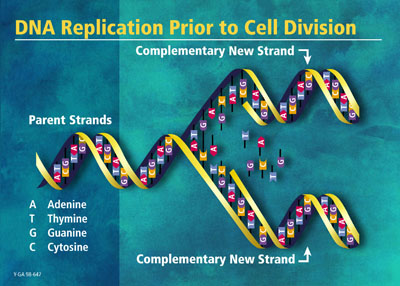- Mar 16, 2004
- 22,030
- 7,265
- 62
- Gender
- Male
- Faith
- Calvinist
- Marital Status
- Single
- Politics
- US-Democrat
Mark, you did not seem to answer the most important piece of shernren's post:
.And the reason this matters is because mRNA isn't heritable, but DNA is, so if you confuse something that happens to mRNA for a mutation, you're going to think of a lot of things as heritable when they actually aren't (directly, at least)
Is this true or not? If not, why? Because if it is, you really don't seem to have a dog in this fight.
That's not even an issue, the question raised is whether or not a transcript error is a mutation. I was focused on DNA-transcription-RNA-translation, whether or not they are heritable was never an issue. Now, transcription is the process that begins with the unzipping of the double helix and results in the mRNA sequence that begins the building process.
He keeps introducing unrelated issues as a diversionary tactic but I'll answer the question. It all depends.
The most important question is whether or not evolutionists can understand the difference between an error during transcription and a transcription error. I knew the difference the first time the subject came up but a transcription error is a mutation and he will never have to admit that.
Damage and transcription error
Mitochondrial DNA is susceptible to damage from free oxygen radicals from mistakes that occur during the production of ATP through the electron transport chain. These mistakes can be caused by genetic disorders, cancer, and temperature variations. These radicals can damage mtDNA molecules or change them, making it hard for mitochondrial polymerase to replicate them. Both cases can lead to deletions, rearrangements, and other mutations. Recent evidence has suggested that mitochondria have enzymes that proofread mtDNA and fix mutations that may occur due to free radicals.(Human mitochondrial genetics)
Mitochondrial DNA is susceptible to damage from free oxygen radicals from mistakes that occur during the production of ATP through the electron transport chain. These mistakes can be caused by genetic disorders, cancer, and temperature variations. These radicals can damage mtDNA molecules or change them, making it hard for mitochondrial polymerase to replicate them. Both cases can lead to deletions, rearrangements, and other mutations. Recent evidence has suggested that mitochondria have enzymes that proofread mtDNA and fix mutations that may occur due to free radicals.(Human mitochondrial genetics)
Transcript errors are mutations, that's the issue.
Last edited:
Upvote
0




